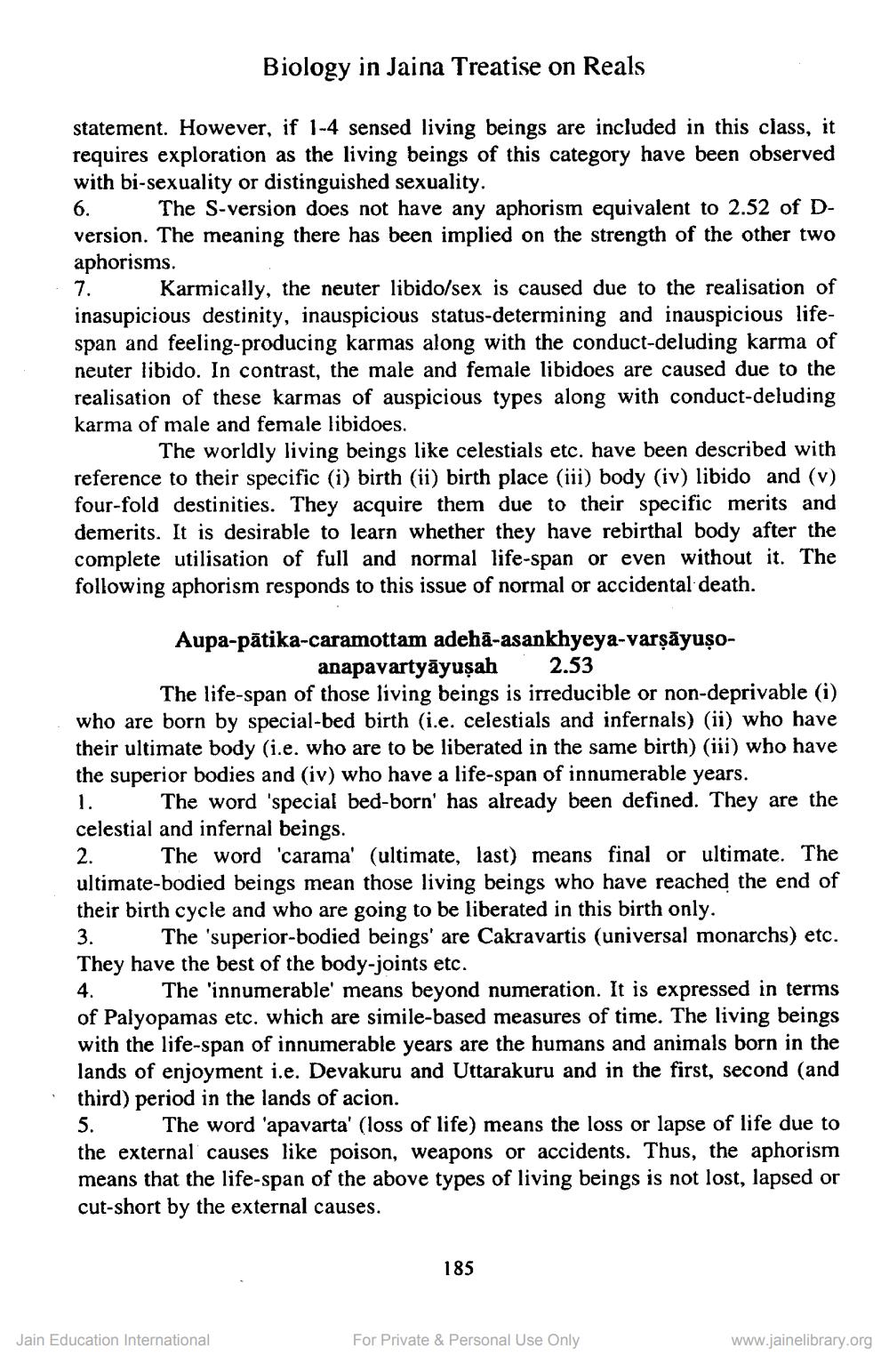________________
Biology in Jaina Treatise on Reals
statement. However, if 1-4 sensed living beings are included in this class, it requires exploration as the living beings of this category have been observed with bi-sexuality or distinguished sexuality.
6. The S-version does not have any aphorism equivalent to 2.52 of Dversion. The meaning there has been implied on the strength of the other two aphorisms.
Karmically, the neuter libido/sex is caused due to the realisation of inasupicious destinity, inauspicious status-determining and inauspicious lifespan and feeling-producing karmas along with the conduct-deluding karma of neuter libido. In contrast, the male and female libidoes are caused due to the realisation of these karmas of auspicious types along with conduct-deluding karma of male and female libidoes.
7.
The worldly living beings like celestials etc. have been described with reference to their specific (i) birth (ii) birth place (iii) body (iv) libido and (v) four-fold destinities. They acquire them due to their specific merits and demerits. It is desirable to learn whether they have rebirthal body after the complete utilisation of full and normal life-span or even without it. The following aphorism responds to this issue of normal or accidental death.
Aupa-pātika-caramottam adehā-asankhyeya-varṣāyuṣo
anapavartyāyusah 2.53
The life-span of those living beings is irreducible or non-deprivable (i) who are born by special-bed birth (i.e. celestials and infernals) (ii) who have their ultimate body (i.e. who are to be liberated in the same birth) (iii) who have the superior bodies and (iv) who have a life-span of innumerable years.
1.
The word 'special bed-born' has already been defined. They are the celestial and infernal beings.
2.
The word 'carama' (ultimate, last) means final or ultimate. The ultimate-bodied beings mean those living beings who have reached the end of their birth cycle and who are going to be liberated in this birth only.
3.
The 'superior-bodied beings' are Cakravartis (universal monarchs) etc. They have the best of the body-joints etc.
4.
The 'innumerable' means beyond numeration. It is expressed in terms of Palyopamas etc. which are simile-based measures of time. The living beings with the life-span of innumerable years are the humans and animals born in the lands of enjoyment i.e. Devakuru and Uttarakuru and in the first, second (and third) period in the lands of acion.
5. The word 'apavarta' (loss of life) means the loss or lapse of life due to the external causes like poison, weapons or accidents. Thus, the aphorism means that the life-span of the above types of living beings is not lost, lapsed or cut-short by the external causes.
Jain Education International
185
For Private & Personal Use Only
www.jainelibrary.org




